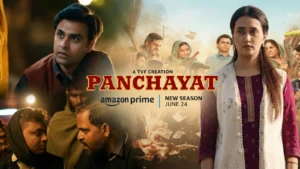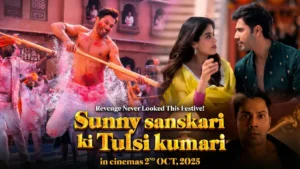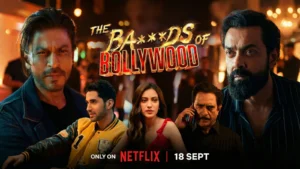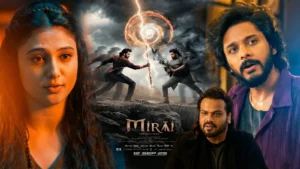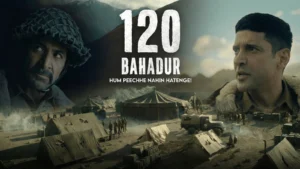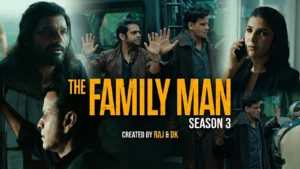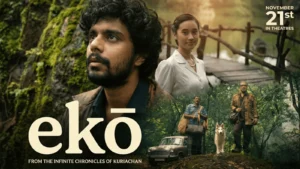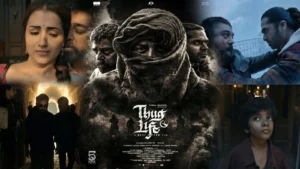Vijay Deverakonda’s latest film Kingdom, released as Samrajya in Hindi, arrived in theatres today with considerable anticipation. For several weeks, discussions surrounding its teaser and trailer have circulated widely, and many viewers had positioned it as Deverakonda’s potential comeback vehicle. With this release, a significant portion of his audience believes that his return to form is now confirmed. However, while performance in his home market remains unclear, the Hindi belt saw relatively few shows. The film entered theatres at a time already dominated by some large releases (The Fantastic Four: First Steps), along with several more queued for imminent arrival, creating a notable challenge in screen availability.
Despite these limitations, I travelled to watch the film, and this review is structured in accordance with the strengths and shortcomings the movie presented.
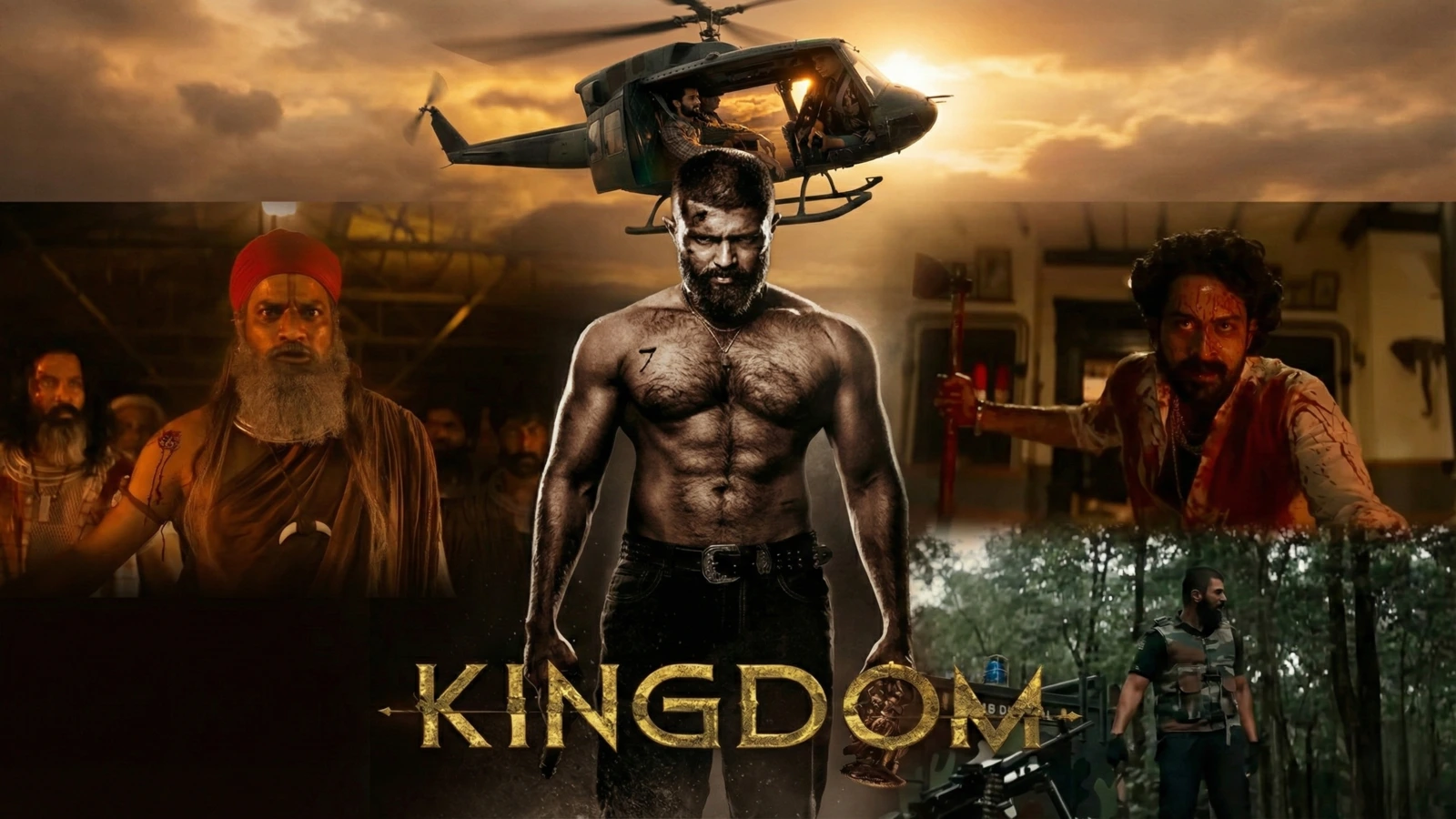
Story: A Strong Beginning with Emotional Potential
From a narrative standpoint, Kingdom opens promisingly. The initial portions are compelling, with well-timed twists and a storyline that progresses engagingly. The plot centres around two brothers who share a deep bond. Their childhood, however, is disrupted by a tragic incident that forces the elder brother to leave home.
In the present timeline, Vijay Deverakonda’s character, Suri, is introduced as a police constable deeply determined to locate his missing elder brother. Suri remains unaware of whether he is alive or dead, and this emotional anchor forms the core of his character’s journey. The film treats this theme with sincerity, resisting unnecessary melodrama, and for much of the runtime, the emotional arc is effective.
Suri’s pursuit eventually leads to a confidential assignment in Sri Lanka, where there is a possibility his brother may be found. However, the environment he enters is far from straightforward. He encounters an intricate political ecosystem involving illegal operations – gold smuggling, weapons trafficking, and underground networks. The world-building suggests a parallel universe where danger and political manoeuvring coexist with dramatic tension.
While refraining from revealing further details, it must be noted that the emotional foundation – particularly the bond between the brothers – is well executed. A major sequence later in the film silenced the entire theatre, reflecting the intensity of the moment. This scene alone had the potential to elevate the film significantly.
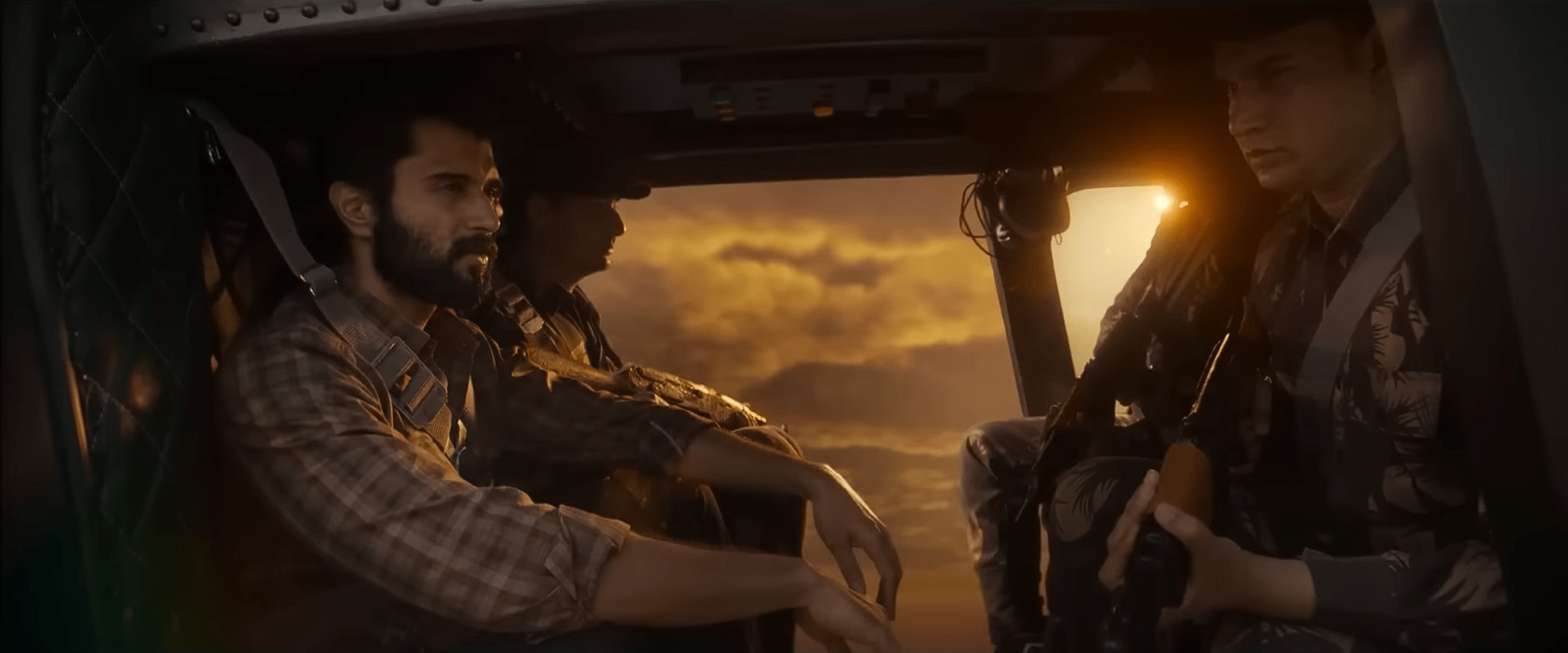
- Story: A Strong Beginning with Emotional Potential
- Performances: A Well-Balanced Portrayal of Two Leads
- Music and Technical Craft: Successful Experiments and Strong Visuals
- Action: Intellectually Driven, Occasionally Excessive
- The Ending: A Shift That Disrupts the Narrative Flow
- Direction: Strong Craft, Limited by a Derivative Final Vision
- Final Verdict
- Related Movie Reviews
- Rate this movie
Performances: A Well-Balanced Portrayal of Two Leads
One of the commendable aspects of Kingdom is its treatment of both brothers as central characters. Despite Vijay Deverakonda being the commercial face of the film, the narrative does not sideline the elder brother in an attempt to amplify the star’s screen presence.
Satyadev, portraying the elder brother, delivers a strong performance. His emotional depth and screen intensity complement Deverakonda’s portrayal, creating a balanced dynamic. For viewers anticipating Vijay’s performance, Satyadev’s contribution adds an additional layer of engagement.
Vijay Deverakonda, meanwhile, is presented with a refreshed image – shorter hair, toned-down swagger, and a character shaped more by emotional weight than style. Yet, the film does not deny him the mass-appeal sequences – slow-motion entries, dramatic shots, dust-swirling action cues – all of which draw enthusiastic audience reactions.
The younger brother’s character is built with layers of attachment, respect, and fierce protectiveness toward his elder sibling. This blend of emotional vulnerability and controlled aggression fits Deverakonda well. While audiences have previously seen his range in films like Arjun Reddy, Kingdom highlights his aptitude for action, showcasing him as a capable and convincing action lead – distinct from earlier missteps such as Liger.
Music and Technical Craft: Successful Experiments and Strong Visuals
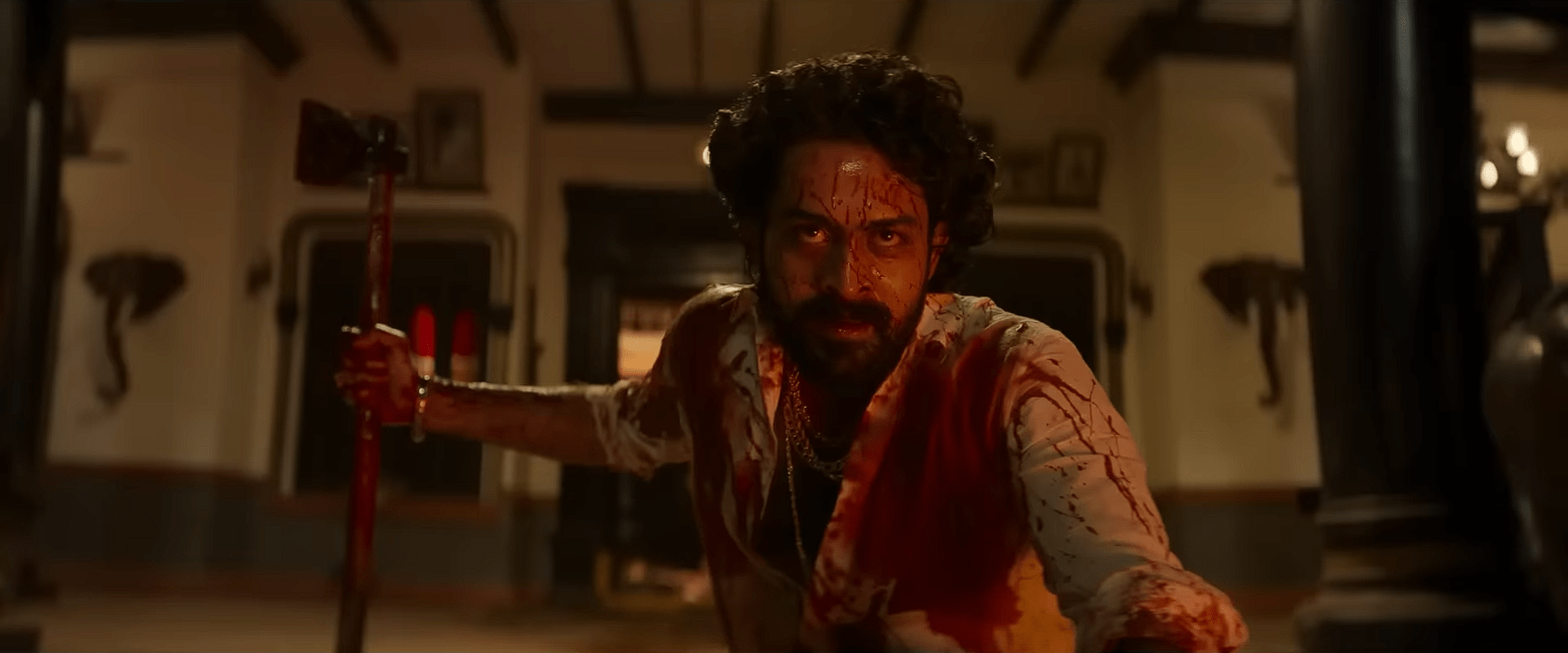
The film’s music, composed by Anirudh, diverges slightly from his usual style but remains effective within the narrative. A particularly appreciated choice is the retention of the original-language song in the Hindi version, avoiding a forced or poorly dubbed adaptation.
Visually, Kingdom stands out. Directed by the filmmaker behind Jersey (both Telugu and Hindi versions), the film demonstrates precise shot composition and emotional visual storytelling. Even in high-intensity sequences, the camera movements are deliberate and contribute meaningfully to the overall tone. A clear artistic sensibility runs through the narrative, interwoven with the genre’s necessary elements.
Action: Intellectually Driven, Occasionally Excessive
The action in Kingdom is anchored in Suri’s role as a secret agent. Much of the choreography revolves around his need to think quickly, improvise, and escape complex situations. Many of these sequences appear credible and are executed with stylistic precision.
However, there are moments where the intensity borders on excess, occasionally testing the limits of believability. Even so, subsequent sequences usually compensate with stronger execution.
As expected from the South Indian action genre, certain moments incorporate familiar stylistic choices and dramatic exaggerations. For instance, the sequence where Suri reunites a mother and child, followed by a character proclaiming he had not witnessed such a reunion in many years, feels conspicuously melodramatic – particularly in the Hindi dub, where it comes across in an almost television-serial tone.
Nevertheless, these clichés are isolated enough to overlook, especially given the film’s broader strengths.
The Ending: A Shift That Disrupts the Narrative Flow
At the beginning, I mentioned about shortcomings, and the reason lies in its final act.
While the initial segments of Kingdom carry originality, emotional depth, and steady pacing, the film gradually begins to resemble another widely popular cinematic structure. This similarity, subtle at first, grows increasingly noticeable. Over its 160-minute runtime, the sense of déjà vu appears intermittently.
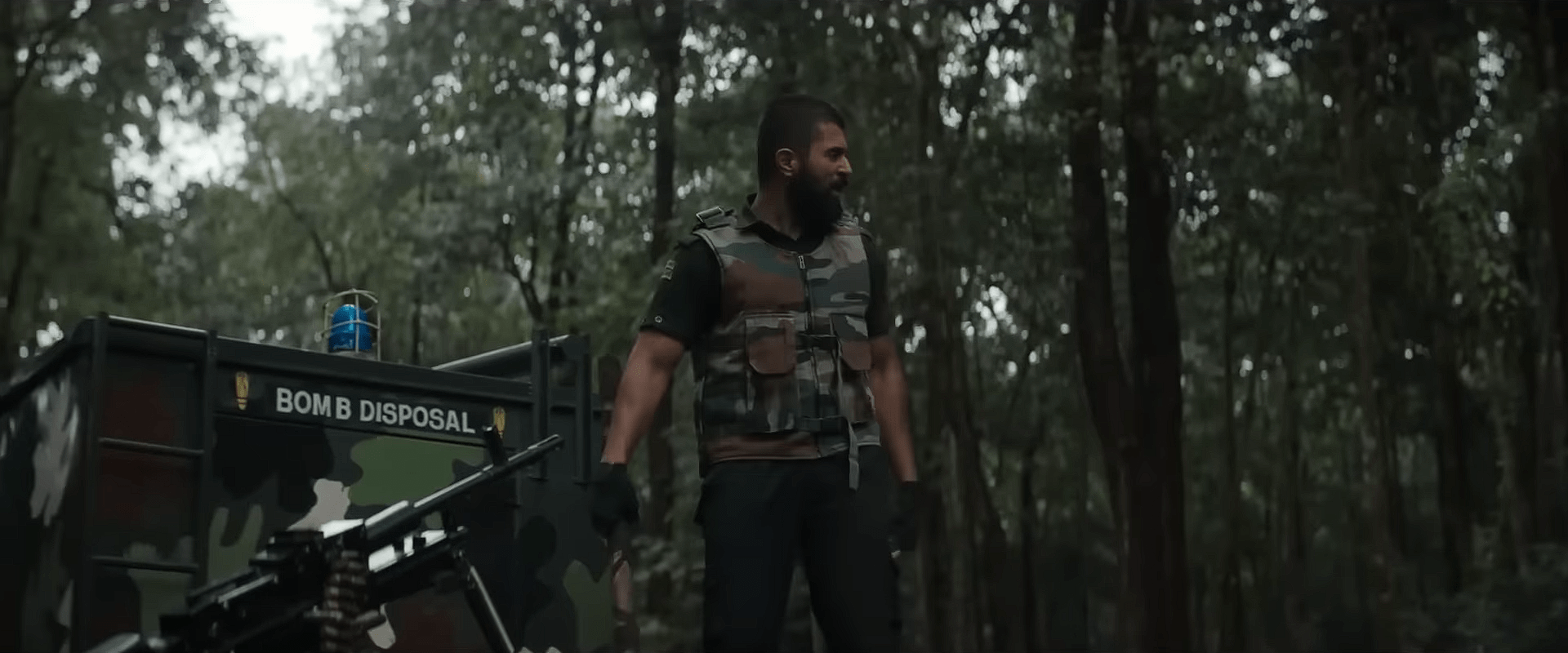
However, the final 15 minutes alter the entire tone. The film transitions into a narrative format heavily reminiscent of earlier two-part epics, particularly those inspired by the success of Baahubali. Ten years have passed since that landmark release, and many films have attempted variations of that formula. The technique, at this point, risks overuse.
To clarify, Kingdom – is actually Part One, though this is not explicitly stated in the title. This revelation at the end shifts the film from a grounded emotional drama to a prophecy-driven epic setup. For many viewers, this sudden change may diminish the impact of the preceding narrative.
The journey begins with two brothers. It moves into an espionage arc. And finally, it diverts into a mythic world-building format. The transition is abrupt enough to disrupt the cohesion of the story.
This structure, driven perhaps by the commercial success of similar formats, ultimately dilutes what could have been a powerful emotional film. The potential was significant, but the ending evokes a sense of repetition rather than revelation.
Direction: Strong Craft, Limited by a Derivative Final Vision
The strengths of Kingdom – its emotional sequences, visual appeal, and performances – stem from the director’s craftsmanship. There is clear evidence of thoughtful filmmaking, particularly in the way key scenes are staged and performed.
However, the decision to emulate elements from previous blockbuster templates weakens the concluding portion. The director’s own narrative strengths – rooted in grounded emotion and human drama – were robust enough to carry the film without adopting an overfamiliar structure.
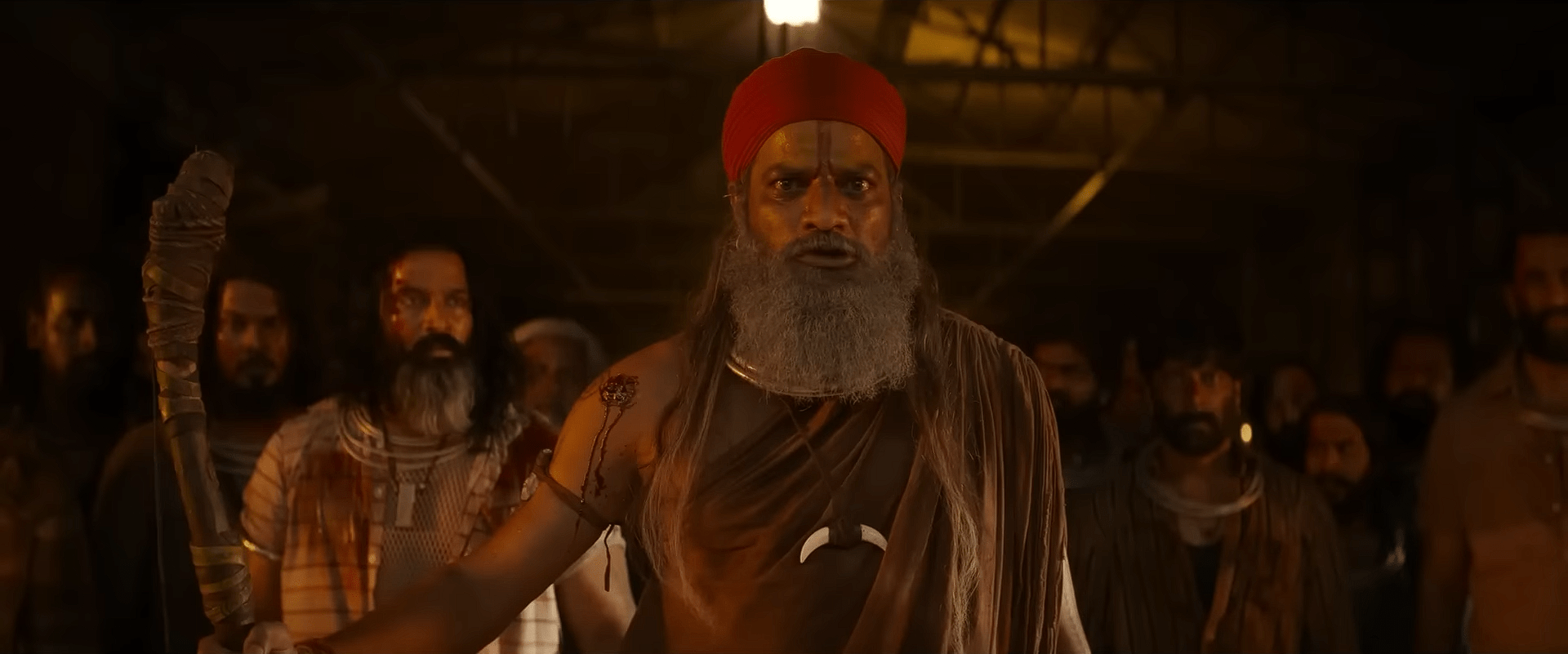
Final Verdict
Kingdom is a film with notable merits:
- A compelling emotional foundation,
- Strong performances,
- Impressive visuals,
- Well-crafted action sequences,
- And an engaging first half.
However, its sudden shift into a Baahubali-style mythic framework compromises the narrative flow, resulting in an ending that feels repetitive rather than impactful.
If you are seeking a general cinematic experience, there are several strong options currently available. If you specifically prefer South Indian films or Vijay Deverakonda’s work, Kingdom is certainly watchable – provided you are aware of the narrative shift awaiting you in the final moments.
The film stands firmly on its emotional arc, twists, brotherly relationship, and action, but its concluding stretch lacks the strength displayed by films such as Kantara or Hanu-Man, which leave audiences with a resonant final impact. Kingdom, instead, begins strongly, progresses confidently, and concludes with a somewhat weakened sense of déjà vu.
